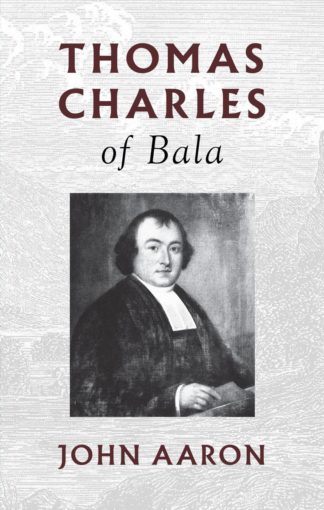
John Aaron provides here a fresh account of Thomas Charles’s life, presented against the backcloth of his day and age, and in the light of Charles’s extensive network of correspondents, both Welsh and English.
In Wales, the popular picture of Thomas Charles (1755–1814) had traditionally been of the man who gave a Bible to Mary Jones; who was the ‘Father of the Sunday School’; and who was behind the formation of the British and Foreign Bible Society. But in modern Wales this picture has almost completely faded. No biography of Charles has been published in English or Welsh since 1908—this is the first for over a hundred years.
This new biography covers many aspects of Charles’s life that deserve to be extensively known, including, among others, his long and frustrating courtship of Sally Jones; his early connections with evangelicals in the Church of England, including John Newton and Henry Thornton; the immense and rapid spread of his schools; the revivals which took place under his preaching; his editorial labours over the text of the Welsh Bible; and his leadership of the Calvinistic Methodist Connexion.
Thomas Charles’s writings revealed his spiritual maturity and wisdom. His balance of Christian doctrine, experience, and practice was remarkable. In this wide survey, John Aaron does not shrink from acknowledging both the strengths and weaknesses of his subject, and also seeks to engage with Charles’s scholarship and theology. Here is a book to inform, stir, and inspire.
In Wales, the popular picture of Thomas Charles (1755–1814) had traditionally been of the man who gave a Bible to Mary Jones; who was the ‘Father of the Sunday School’; and who was behind the formation of the British and Foreign Bible Society. But in modern Wales this picture has almost completely faded. No biography of Charles has been published in English or Welsh since 1908—this is the first for over a hundred years.
This new biography covers many aspects of Charles’s life that deserve to be extensively known, including, among others, his long and frustrating courtship of Sally Jones; his early connections with evangelicals in the Church of England, including John Newton and Henry Thornton; the immense and rapid spread of his schools; the revivals which took place under his preaching; his editorial labours over the text of the Welsh Bible; and his leadership of the Calvinistic Methodist Connexion.
Thomas Charles’s writings revealed his spiritual maturity and wisdom. His balance of Christian doctrine, experience, and practice was remarkable. In this wide survey, John Aaron does not shrink from acknowledging both the strengths and weaknesses of his subject, and also seeks to engage with Charles’s scholarship and theology. Here is a book to inform, stir, and inspire.



